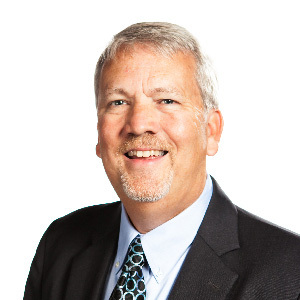The ∫⁄›Æ ”∆µ Alumni Board ‚Äî a team of great volunteers who represent you ‚Äî met recently to offer their wisdom and counsel on an important topic: affordability. You see, President Corey and all of us are concerned about the affordability of a Biola education, and he has called for an affordability committee from across campus to get creative in identifying ways to make education more affordable. For those of you carrying Biola debt or considering a Biola education for your kids, you understand this call.
Once the topic was announced, affordability committee member Dr. Mike Winter (’80) and I listened and took notes for the next several hours, as we heard stories of how debt has kept graduates from accomplishing the work that God has called them to and they have prepared for. We talked about how scholarship giving could help reduce the burden of tuition. And we talked about what an affordable college education would look like. We all agreed that a college education comes with a price, whether it is at Biola or a junior college in the Midwest and, well, you should get what you pay for!
So what makes college tuition affordable? Here are some things we agreed on:
- The cost to attend Biola should be comparable (or less, if possible) to what other similar schools are charging, and scholarships and loans available as readily.
- Biola needs to educate students about the debt they are about to carry and how it may affect everything from their career choice to their stewardship and families to perhaps the car they are going to drive.
- Students need to be educated about options like loan and grant choices, debt forgiveness programs, job placement opportunities and challenges, and what they can expect when they graduate. Students need to know what loans really cost, and recognize, for example, how much it will cost and how long it will take to repay their loans if they choose to pay the minimum payment.
- When it comes to the value of our education, Biola alumni would love to have career networking similar to networks found in the best Ivy League schools. And why shouldn’t we stick together like they do — alumni hiring alumni! We are brothers and sisters in Christ, and if you are going to hire someone, who better than a fellow graduate with a similar worldview! This will be one of the alumni office’s priorities in the coming year, and we will need your help.
As we concluded our board meeting, we talked a little about how every student (including you and me!) received the benefit of gifts from alumni who had come before. At Biola, on average, just over $1 million is received each year from alumni to help keep tuition lower. Small gifts from a lot of alumni can really make a difference. That’s how certain schools that receive millions of dollars from their alumni for scholarship aid can provide students a no- or low-tuition education. At these schools, alumni and friends give so much that they don’t have to charge students tuition! Wow!
So, what’s next? We will report back to the affordability committee on the board’s reflections. But we aren’t done there. I want to hear from you on your experiences, concerns and suggestions on how we make a Biola education available to every student interested in receiving it. Your thoughts are important, as I’m sure there are things we have not thought of yet. Nothing breaks my heart more than the stories I hear about alumni who wish their kids could come to Biola, but are unable to because of the cost. Except when kids go to Azusa Pacific. That really hurts. (Just kidding!)
Biola founder Lyman Stewart said it best when describing his vision for the school: “For the teaching of the truths for which the Institute stands, its doors are to be open every day in the year, and all people, without reference to race, color, class, creed, or previous condition, will ever be welcome to its privileges.”
Working together, with the right changes and actions, we can make a Biola education affordable for every student who desires one. Thanks for your thoughts on this important topic. Please send them to rick.bee@biola.edu.
 ∫⁄›Æ ”∆µ
∫⁄›Æ ”∆µ
.jpg)

